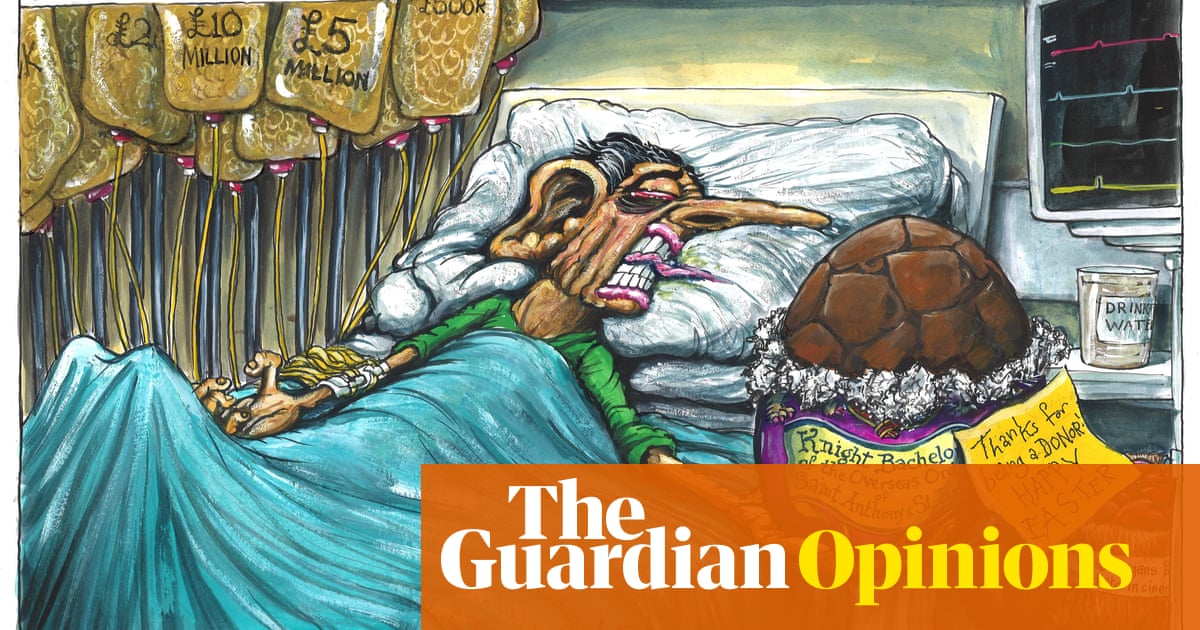
llegra Stratton should have refused to become the new Downing Street press secretary. I have three big reasons for saying this, and none of them has anything to do with party politics, or my views about the Conservatives or Boris Johnson, or even my liking for Stratton herself.
The first is that, whoever got it, this job is a very bad innovation. Britain has a parliamentary system not a presidential one. It’s important to keep it that way and not undermine it. In a parliamentary system, the prime minister should be answerable to MPs in the House of Commons first, and to the media second. When John Bercow was Speaker, but also now under his successor, Lindsay Hoyle, there has been a big effort to make sure that this happens more regularly and more fully. The new post, with its proposed daily televised on-the-record briefings, deliberately turns that on its head.
This matters for lots of reasons, but it matters fundamentally because parliament is sovereign. This may sound like a boring cliche to some people, but it’s really important, and it’s much too important to throw away. In big ways and small, governments only operate with the consent of parliament. There are lots of threats to the proper working of that process – prerogative powers, statutory instruments, and the kind of Henry VIII powers that the current government conferred on itself in the Coronavirus Act 2020 among them. Daily on-the-record briefings by the Downing Street press secretary are an immense new weapon in that armoury. And deliberately so. The system bypasses parliament. It presidentialises the prime minister. It allows the government to tighten its control over the agenda still further. And that’s a bad thing, especially with a prime minister who isn’t up to the job.
You don’t just have to take my word for this. Listen to the views of Bernard Ingham, who, like Stratton, once worked as a Guardian reporter before he ended up as Margaret Thatcher’s formidably effective press secretary throughout the 1980s. Ingham describes the new system as a “constitutional outrage” and he is right about that. He’s also right that, sooner or later, the new press secretary will reveal “inevitable ignorance” about one of the infinite numbers of subjects on which she will have to give perfectly formed and accurate answers to the press each day. That the new system contains the seeds of its own eventual downfall may reassure some. But we shouldn’t have to wait for that to happen.
My second issue with Stratton’s move is one that Ingham would not agree with. I say that journalists should stick with journalism. They should not cross the floor to work for the politicians, let alone to become politicians. Far too many of my colleagues have done that over the years and the results have rarely been good – from Johnson himself downwards. I regret every one of those departures from journalism. Naturally, I especially regret the friends who have made the switch. But I even regret the people I disliked and mistrusted who have also trodden that path. The loss of each one of them is bad for the standing of journalism as an independent, truth-seeking trade.
I don’t say that journalism is a priesthood to which you must make your vows and must never leave. That would be delusional, especially in the British press. But I do say that journalism is more important than any journalist. When you become a journalist, especially for papers and broadcasters that try to be fair, truthful and accurate, you have to commit yourself to telling the truth, and to political independence. Once you cast off that independence, you can never reacquire it. Another friend of mine once had an interview for the post of chief press officer for an important trade union leader. The final interview was a one-on-one with the union boss. His first question to my friend was a good one. “Are you willing to lie for the union?” That’s what crossing the floor can entail.
My last reason is that, here and now, the threats to independent and honest journalism have rarely felt greater. The onslaught of social media and fake news is a big part of that. But so, in this country, is the relentless besieging of the BBC and parts of the written press, mainly but not solely from the right. Good people should be on the side of the besieged not the besieger. Journalism today has enough challenges without journalists adding another one. Working for politicians adds to the taints and shames that journalism should strive to minimise if it is to survive. I’m afraid Stratton has decided to be on the wrong side in that battle against a sleepless enemy. I hope she is troubled by that. I certainly am.
• Martin Kettle is a Guardian columnist












